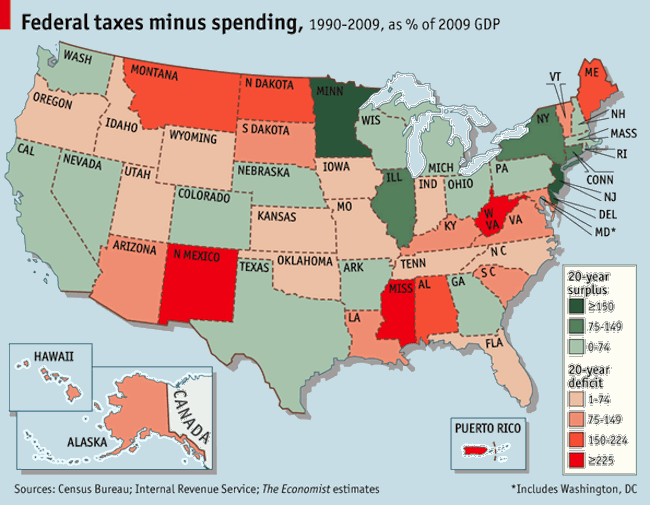26 Jun Why the dollar zone works and the euro zone doesn’t
The Atlantic’s Derek Thompson explains it in four terse sentences:
Europe has Greece. We have Mississippi. Europe uses the term “permanent bailouts.” We call it “Medicaid.”
And he illustrates the point with a map from the Economist:
Thompson again:
[T]he poorest states like Mississippi, New Mexico, and West Virginia rely on ginormous transfers of federal taxes in the form of unemployment benefits and Medicaid. Like the United States, the euro zone is all on one currency. Unlike the United States, the euro zone collects a teensy share of total taxes at the EU level and has no legacy of permanent fiscal transfers from the richer countries, like Germany, to the poorer countries, like Greece. The result is the chaos playing over your computer screen day after day.
Here in the U.S., states like New Mexico and Alabama are always “in fiscal trouble.” But it’s not news. In the last 20 years, the seven states in orange and red in the graph have accepted federal money worth around 200% of their annual GDP. Perhaps you’ve had a bar debate about whether we should boot Mississippi from the union, but that sort of thing hasn’t made its way to Washington.

